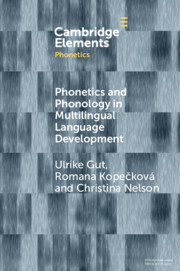The present study explored whether emergent bilingual children showed enhanced abilities to learn L3 vocabulary including written, spoken and conceptual forms compared to monolinguals, and the impact of L2/L3 cross-language similarities on such an effect. To this end, we contrasted the English word learning performance of French fifth-graders attending either a monolingual school program or a classroom-immersion program with German as an L2. Half of the items to be learned were German/English (L2/L3) cognate words while the other half were monolingual English (L3) words. Learning was assessed with a forced-choice recognition task, a go/no-go auditive recognition task and an orthographic judgment task. Results yielded a generalized bilingual advantage, with classroom-immersion children outperforming monolinguals on all tasks, irrespective of cognateness, except for the orthographic task. These findings advocate for a bilingual advantage in children that is globally not driven by the specific language properties of cognates, except for the written modality.
